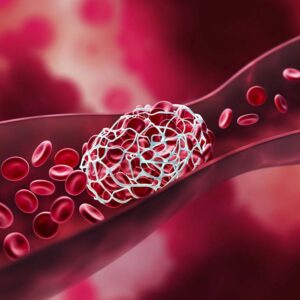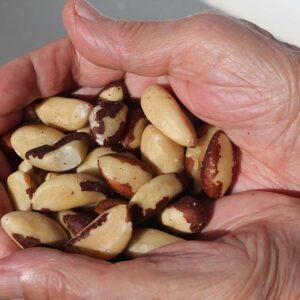
From the Mailbag: Fecal Transplants and Full-Fat Dairy
Dear Living Well Daily Reader,
You’ve got questions…
We’ve got answers!
Last week, we discussed natural solutions for treating psoriasis and got an overwhelming number of reader responses. Thanks so much for writing in. We will be vetting those responses and will share reader tips on how to alleviate this uncomfortable skin condition in an upcoming mailbag edition of Living Well Daily. Stay tuned!
If you have a psoriasis tip you’d like to share, send it to nmoore@lfb.org.
This week, we will be discussing fecal transplants and how they may be leading the way in treating a common bowel infection. We’ll also talk about how eating full-fat dairy may reduce your diabetes risk.
Let’s dive in…
![]() Poop Transplants Save Lives?
Poop Transplants Save Lives?
Hey, Natalie,
My brother-in-law suffers from recurrent intestinal infections. His doctor said it’s due to a bacteria called C. diff, and it’s really hard to treat. He’s been hospitalized several times because of the infection and has suffered through many courses of antibiotics but has experienced no relief. Last week, his doctor suggested he get a fecal transplant. Do you know how they do this? Moreover, do they actually work for treating C.diff?
Thanks,
Tim W.
Interesting questions, Tim.
Clostridium difficile is a bacterium that can cause serious gastric symptoms including diarrhea, abdominal cramping and even life-threatening inflammation of the colon. C. difficile infections are usually contracted after antibiotic use and most commonly affect older people in hospitals or care facilities. However, these infections are now showing up in folks without a history of being in health care facilities or antibiotic use.
Just as in your brother-in-law’s case, C. diff sufferers are typically given antibiotics that target the specific bacteria that cause the infection. However, these additional antibiotics don’t always kill the infection — even with multiple courses.
That’s where the poop comes in…
In recent years, scientist and doctors have performed an unconventional operation called a fecal transplant. During this procedure, “healthy” stool from a donor is implanted in the colon of the C. difficile sufferer. This is done via colonoscopy or nasogastric tube, and it uses the donor’s stool to replenish healthy gut bacteria.
Research shows that fecal transplants have a success rate higher than 90 percent for treating dangerous C. difficile infections. Plus, they don’t subject the body to more antibiotics, which can kill off the beneficial bacteria in your stomach.
So if your brother-in-law goes forward with the procedure, there’s a great chance that he will recover from this debilitating and painful condition and hopefully be able to say goodbye to good-gut-bacteria-destroying antibiotics.
![]() Full-Fat Freedom
Full-Fat Freedom
Dear Natalie,
A friend in my card circle told me that eating and drinking full-fat dairy products can decrease your risk for diabetes. Is this true?
Thanks,
Libby B.
Thanks for your question, Libby.
Yes, this is true. According to a recent study, full-fat dairy products have been linked to a lower risk of diabetes.
The study, which is published in the journal Circulation, involved 3,333 participants who were monitored for both biomarkers for dairy fat in their blood and the development of diabetes. At the end of the study, the data showed that folks who eat the most dairy fat had about a 50 percent lower risk of developing diabetes.
The researchers weren’t able to establish that eating dairy fat was the exact reason why these folks experienced the decreased risk, but the results certainly show that dairy fat may have protective effects against diabetes.
So if you’re going to eat dairy, be sure to enjoy the full-fat type.
Thanks for your questions! Keep them coming. Send all questions to nmoore@lfb.org
Live well,

Natalie Moore
Managing editor, Living Well Daily
Sources
[1] Fecal Transplantation (Bacteriotherapy)
Written By Natalie Moore
Natalie Moore is a dedicated health researcher with a passion for finding healthy, natural, and science-based solutions. After a decade of direct healthcare experience in western and natural medicine, she was involved in public health research before joining Living Well Daily.
View More Free Articles
Take the SHORTER Path to Dramatically Better Health
Are you tired of fitness gurus preaching the virtues of 5 AM workouts and pushing Olympic-level training regimens? Their narrative can feel exhausting and entirely unattainable. But before you toss in the towel completely, I’ve got news that might just put a spring back into your step. A groundbreaking new study reveals that the key...
Unexpected Perks of Your Coffee Habit Revealed!
We all know that the first cup of coffee in the morning can FEEL like a lifesaver. But what if it might actually BE saving your life? A groundbreaking new study suggests that your daily coffee habit could be protecting you from not just one but multiple chronic diseases. Let’s pour over this fascinating research…...
The TRUTH About Diabetes Drugs and Brain Aging
You’ve probably seen the gushing headlines… Most say something like, “Common diabetes drug protects the brain against aging!” And let’s face it, that sounds fantastic. After all, who doesn’t want to keep their brain young and in tip-top shape? The headlines refer to the results of a new study that suggests the widely prescribed type...
Hidden Smartphone Danger Puts You at Risk
Remember when we thought cell phones were just something for young folks to obsess over? Back when we were convinced they were nothing more than a passing fad? Well, times certainly have changed. Now, most people… including many of us older folks… have jumped on the smartphone bandwagon. Heck, some of us are practically as...
Preserve Your Mobility with “Agile Aging” Exercises
Aging has a way of humbling us. You lose hair where you want to keep it—and often end up growing it where you don’t. With every passing year, your eyesight fades, and your waistline expands. And as your once quick pace begins to slow, you fear developing the dreaded “senior shuffle.” But here’s the thing....
Yes, Lazy Saturday Lie-Ins Can BOOST Your Health
Are you burning the midnight oil during the week and catching up on sleep on weekends? Well, I’ve got some news that might help you feel less guilty about those lazy Saturday mornings. A new study suggests that weekend lie-ins might be doing far more than just helping you feel refreshed. Experts say they could...
Mailbag: 7 Hidden Culprits Behind Your Weight Gain
“Why am I gaining weight, even though I am watching what I am eating?” – Battling the Bulge Dear Battling, Gaining weight when you’re not trying to is frustrating. And it just gets worse as we age… often regardless of our diet. The truth is that various factors can promote weight gain even when you’re...
Popular Artificial Sweetener Linked to Dangerous Heart Risk
Remember when erythritol was the darling of the health food world? Well, this popular sugar substitute might not be as sweet a deal as we were led to believe… A shocking new study reveals a dark side to this widely used artificial sweetener. It turns out erythritol is associated with a dangerous—and even deadly—heart risk....
Cracking the Code on Chronic Inflammation
Inflammation and obesity are the evil tag team at the heart of nearly every major disease we face—from diabetes to obesity. What starts as a normal, healthy process to fend off dangerous invaders can quickly fan into the flames of chronic inflammation… and that includes in your gut. The trouble is almost no one has...
Dreaming of Better Sleep? Your Gut Holds the Key
Do you toss and turn at night? If so, you’re not alone. In fact, if you’re a senior over 65, you join nearly 17 percent of your peers who ALSO struggle with poor sleep quality. But science has uncovered a natural supplement that not only could help you catch more Z’s but can also give...









